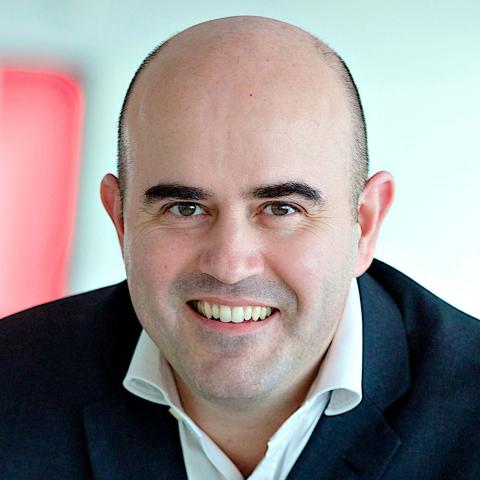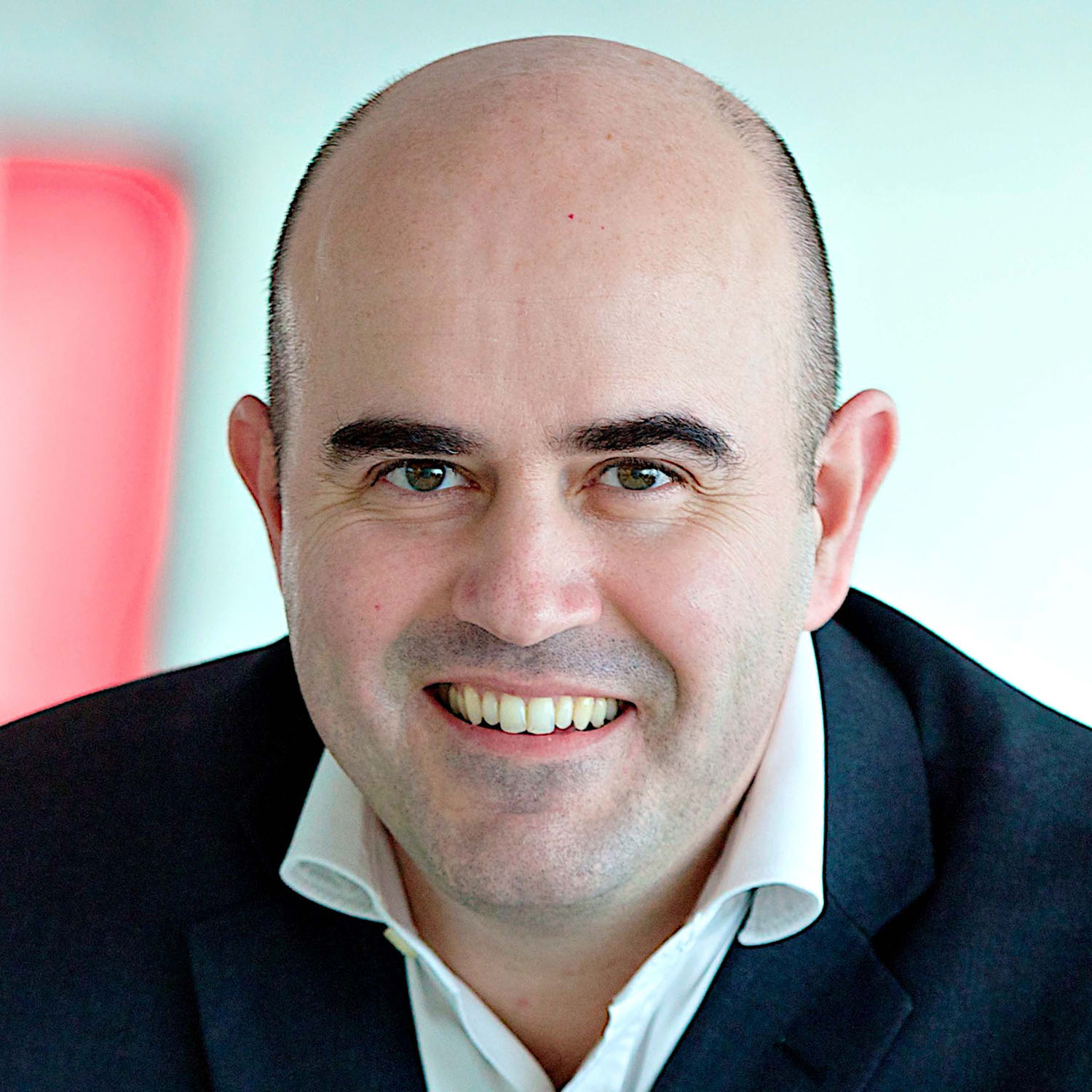
Global demand for mobile data transmissions to grow by 40 per cent Year-on-Year as 5G technology remains hot trend in the GCC
When it comes to the next generation of mobile network technology, some telecom executives have become 5G pessimists, having lost their faith in the power of technology to deliver more. A survey of recent public statements by executives of the 20 largest mobile network operators (MNOs) worldwide shows that while mobile network executives share a belief in the long-term potential of 5G, more than half (53 percent) see no near-term business case for the technology.
According to new Bain & Company research, Why the 5G Pessimists Are Wrong, network operators that do not move quickly enough on 5G run the risk of being left behind on a technology that has the power to dramatically increase network speed and capacity and give early adopters a competitive edge. This would have material market share and cash flow consequences given the quality of the network – the single most important purchase criteria for the majority of customers.
“Generation after generation, we’ve seen network operators invest capital to upgrade their infrastructure with the firm belief that those investments would lead to more satisfied customers, a reinvigorated top line, and higher profits,” said Herbert Blum, who leads Bain & Company’s Telecommunications practice in the Americas. “Given the potential 5G technology has to bring about a step change in network performance and thereby new uses, the reluctance of some operators to commit to this new technology is striking.”
 Gregory Garnier, Partner, Middle East, said: “The demand for mobile data transmissions has been growing by 40 per cent per year globally, prompting operators to regularly create new cells. Since 5G cells are capable of taking up some of that demand, operators won’t need to build as many new 4G cells, which will in turn help them put a cap on capital spending. 5G is a hot topic for operators in the GCC as both a way to keep leading and innovating in the digital space and in some markets as a powerful mean to disrupt fixed and fiber access “
Gregory Garnier, Partner, Middle East, said: “The demand for mobile data transmissions has been growing by 40 per cent per year globally, prompting operators to regularly create new cells. Since 5G cells are capable of taking up some of that demand, operators won’t need to build as many new 4G cells, which will in turn help them put a cap on capital spending. 5G is a hot topic for operators in the GCC as both a way to keep leading and innovating in the digital space and in some markets as a powerful mean to disrupt fixed and fiber access “
Bain & Company believes misconceptions and flawed thinking have influenced the industry. While attitudes about 5G can vary with size and market position, three common analytical fallacies have emerged:
- There is no compelling, near-term business case for 5G. Skeptics ask why the industry should invest in 5G now when the technologies that will require it are still years away from being ready – for example, augmented reality/virtual reality and autonomous driving. What this reasoning misses is that network operators do not need blockbuster use cases to develop a good business case for investing in 5G. They can develop a compelling rationale for 5G based on the improvements it will bring to existing use cases – most notably: competitive differentiation, 4G congestion relief and fixed-line substitution.
- Implementing 5G will require enormous, and unjustifiable, capital investments. Some have argued that aggressive 5G deployment will require vast increases in capital spending. For example, according to one recent forecast, a major European integrated operator adopting 5G would need to increase its capex-to-revenue ratio from 13 percent to 22 percent, even if the company rolled out 5G only to densely populated urban and business areas. Bain & Company sees four flaws in this logic:
- First is the assumption that a contiguous canopy of 5G coverage is required. In reality, 5G capable devices will seamlessly—and nearly instantly—connect to 4G cells when they cannot get a 5G signal.
- Second is the belief that mobile network operators will need to build large numbers of new 5G cells across their networks. In Bain & Company’s view, most MNOs already have sufficient node density in their urban markets to accommodate 5G using 3.5GHz and even millimeter wave (mmWave) spectrum.
- The third flaw is the tendency to view 5G spending in isolation. This view neglects the spillover benefit that upgrading some parts of the network will have on the rest of it.
- The fourth and final flaw is the failure to anticipate how 5G technology will evolve to allow 4G and 5G to coexist in the same spectrum with the same node equipment.
- The main reason to invest in 5G is to reduce costs or, at least, to improve unit economics—but not to increase revenues. Some in the industry predict that with the combination of 5G and digital transformations, network operators would be able to slash their capex-to-revenue ratio from about 15 percent to under 10 percent within five years. While there is no question that 5G will help network operators perform more efficiently, that doesn’t mean operators should invest in 5G solely, or even primarily, to increase efficiency. The most successful operators will create a virtuous cycle of 5G reinvestment.
Winning operators will be those that build 5G networks that make full use of existing physical and spectral assets. The leading MNOs invest prudently, avoiding unnecessary surges in capital spending. They develop multiyear, battleground-specific rollout plans that they can adapt as 5G technology improves. Additionally, these operators focus on investments that can deliver both operating costs savings and revenue growth, with the goal of sustaining a steady capital spending-to-revenue ratio of 9 percent to 12 percent.
“As was the case with earlier generations of network technology, 5G, along with closely related digital transformation, will unlock capital efficiencies,” said Darryn Lowe, a partner in Bain & Company’s Telecommunications practice. “The most forward-looking operators will use those savings to invest in new revenue-generating 5G projects—thereby defying the 5G pessimists and fully embracing the promise of what this latest generation of network technology can deliver.”
About Bain & Company
Bain & Company is the management consulting firm that the world's business leaders come to when they want results. Bain advises clients on strategy, operations, information technology, organization, private equity, digital transformation and strategy, and mergers and acquisition, developing practical insights that clients act on and transferring skills that make change stick. The firm aligns its incentives with clients by linking its fees to their results. Bain clients have outperformed the stock market 4 to 1. Founded in 1973, Bain has 57 offices in 36 countries, and its deep expertise and client roster cross every industry and economic sector. For more information visit: www.bain.com. Follow us on Twitter @BainAlerts.
Categories
- Log in to post comments